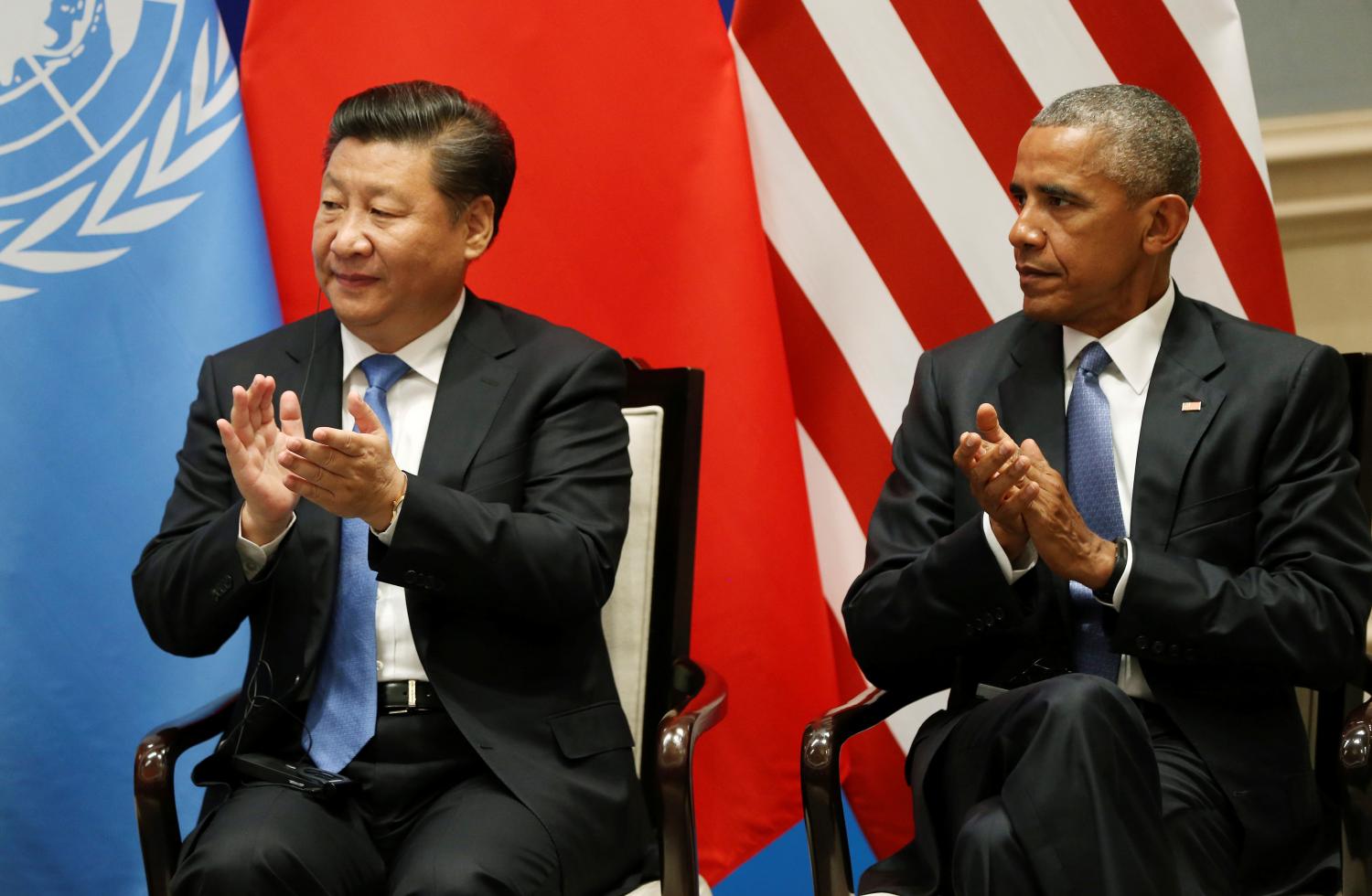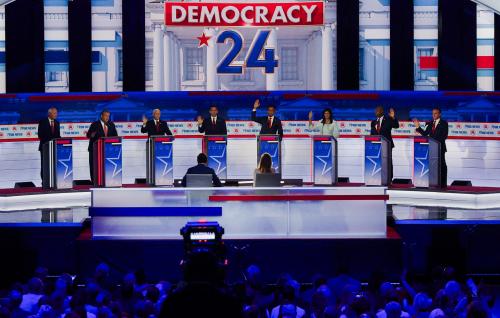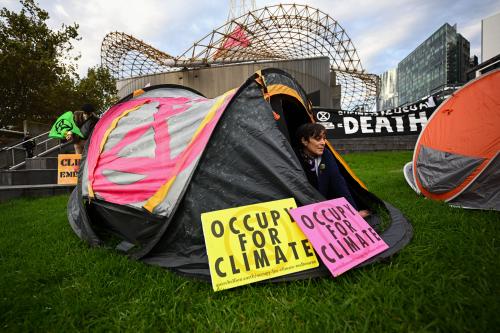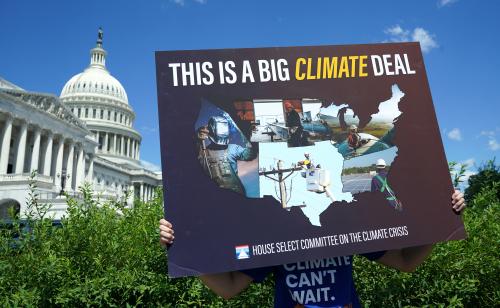After years of failing to produce a climate agreement backed by all of the world’s major greenhouse gas emitters, the United Nations Framework Convention on Climate Change (UNFCCC) produced a historic success in Paris in December 2015. The Paris Agreement, as it’s known, will take effect on November 4, 2016. This agreement has been widely hailed as a turning point in combating global climatic disruption. It enjoys broader and deeper political support than any previous efforts, especially from world’s two largest emitters, which have generally been reluctant participants in past international climate negotiations: the United States and China.
The Paris Agreement was able to garner so much support in large part because of its flexibility and open-ended nature: each participating country was asked to define its own commitment to emissions reduction, and those commitments will be enforced reputationally rather than legally.
Thus, as Phil Wallach explains in this paper, the success of the Paris Agreement depends upon its signatory nations actually delivering on their commitments over time. The virtuous cycle of verified emission reductions followed by a shared deepening of the commitment to further reductions that the agreement is designed to generate could be interrupted or even prevented by domestic politics within individual nations.
Therefore, in order to assess the likely success of the Paris Agreement, we must ask whether countries are willing and able—both politically and technically—to deliver on the commitments they have stated they are ready to pursue.
In this paper, Wallach does just that, investigating the readiness, willingness, and ability of both the United States and China to achieve their self-identified goals. And as he demonstrates, domestic climate politics, though different in form, present significant complications for both countries when it comes to following through on their Paris Agreement promises. In the U.S., the Republican party shows no sign of giving support to the climate agenda put in place by the Obama administration, while in China, it is hard to know if regional officials’ will be politically or technically able to implement plans formulated in Beijing.
In both the U.S. and in China, Wallach concludes, leaders must squarely confront the ways in which domestic politics could limit their ability to meet their Paris Agreement goals.




